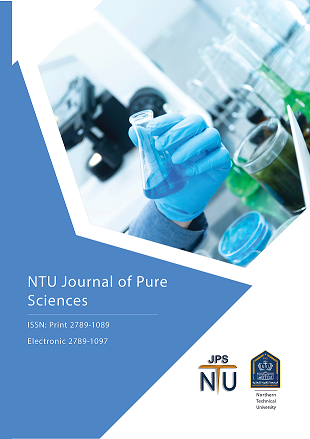Unraveling Immune Regulatory Mechanisms in PCOS
Role of T Regulatory Cells and Receptors
DOI:
https://doi.org/10.56286/awf99t04Keywords:
PCOS, T Regulatory Cells, Immune Dysregulation, Chronic Low-grade Inflammation, Hormonal Imbalances.Abstract
Abstract. The etiology of polycystic ovary syndrome (PCOS) is complex and includes both endocrine in addition to immunological abnormalities. PCOS is a condition that involves chronic low-grade inflammation, which includes the pathological state of regulation in pro-inflammatory factors release rate dysfunctioning endotheliocytes and accumulation of leukocytes. In PCOS, in particular, immune cells and regulatory molecules participate significantly to maintain metabolic homeostasis and modulate the immune reactions. People with PCOS may have hormonal changes such as low levels of progesterone because it usually occurs irregularly or stops ovulated in turn the overstimulation of immune system results from autoantibodies production. In addition, immune cells dysfunction and cytokines imbalance are associated to insulin resistance, hyperandrogenism and obesity in PCOS. In PCOS, obesity also causes dysfunction in immunity to create an inflammatory aura. Autoimmune diseases in PCOS patients also may be developed due to hormonal imbalances. There have been studies indicating a connection, between cells and the underlying causes of PCOS. It appears that grade chronic inflammation is strongly associated with PCOS and can contribute to the loss of ovulation. Additionally there seems to be an imbalance in the levels of ovarian cytokines, which can disrupt functions lead to excessive production of androgens and increase insulin resistance through various mechanisms. The article aims to shed light on the role of disturbance in immune regulation in PCOS disease, including its emergence and development. This may contribute to a deeper understanding of the mechanism of the disease, which may help in finding new therapeutic targets that help reduce the severity of the disease and help reduce poor fertility in women suffered from PCOS.
Downloads
Downloads
Published
Issue
Section
License
Copyright (c) 2024 NTU Journal of Pure Sciences

This work is licensed under a Creative Commons Attribution 4.0 International License.
This work is licensed under a Creative Commons Attribution 4.0 International License (CC BY 4.0), which permits unrestricted use, distribution, and reproduction in any medium, provided the original work is properly cited.









